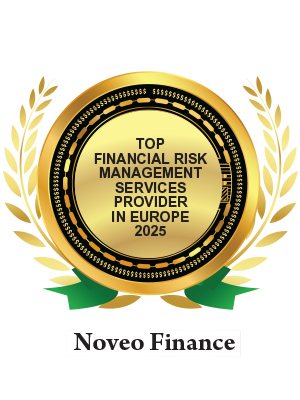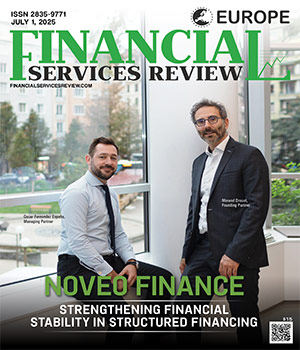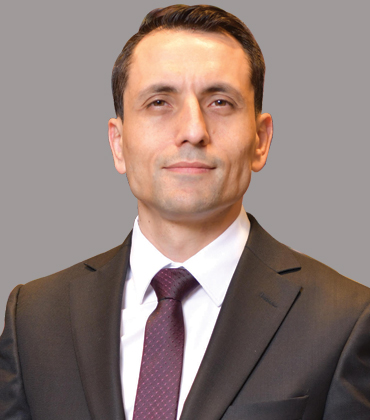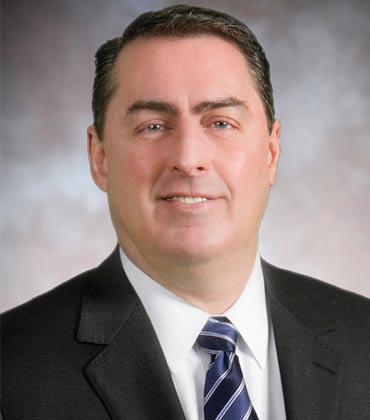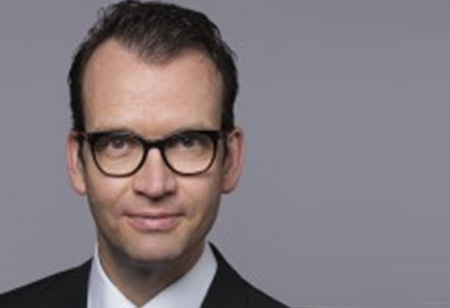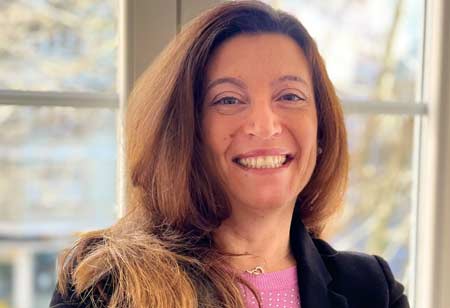Financial Services Review: Specials Magazine
Skilled hedge advisors with deep expertise in financial risk management are key to enhancing financial stability and ensuring businesses secure favourable outcomes in structured financing. Noveo Finance has been a dominant force in this specialised field for the last 15 years, providing clients with hedging solutions that mitigate the impact of interest rate fluctuations, foreign exchange risks and inflation volatility. An independent consultancy firm specialising in financial risk management, Noveo Finance excels at advising clients on structured financing transactions, particularly in infrastructure projects that require substantial capital and long-term financial planning. Many of these come with extended financing terms, where interest rate sensitivity is a key factor. It works closely with project sponsors, utilities, independent power producers and financial investors to ensure that projects are structured to mitigate financial risks, shield against market fluctuations and maintain stability. "We provide tailored solutions built on our expertise, ensuring each client receives an optimised strategy suited to their specific project," says Oscar Fernandez España, managing partner. These strategies safeguard infrastructure investments by addressing financial uncertainties that arise from extended financing structures. Even minor interest rate fluctuations can significantly impact financial outcomes. For instance, a five-year facility carries a different risk profile than a 30-year loan, where prolonged exposure heightens financial vulnerabilities. To address this, the company structures hedging strategies that optimise financing conditions and allow sponsors to secure financial terms early, minimising exposure during negotiations. Noveo Finance strengthens financial stability by implementing pre-hedging strategies, reducing the risks posed by interest rate and foreign exchange volatility throughout the extended timeline of project finance transactions. This ensures investments remain financially sound despite shifting market conditions. Clients also approach the company for greater transparency in derivative pricing, particularly regarding cross-value adjustments, which include counterparty credit risk and funding value adjustments that influence pricing structures and transaction costs. These highly technical adjustments make expert monitoring critical to maintaining fair pricing and securing the best financial results. This is necessary for refinancing transactions, where restructuring existing hedging strategies can significantly optimise financial efficiency. It helps clients navigate these complexities, ensuring optimal pricing structures and financial outcomes.
Best Android POS Solution Provider In Turkey 2025
Pavo’s journey in the fintech industry began in 2013 as part of Aktif Bank’s contribution, Turkey’s largest privately owned investment bank. This collaboration marked the start of Pavo’s rise as one of the country’s leading payment and collection solutions providers. From the outset, the mission was clear—to offer innovative solutions that transform how businesses handle payments and collections while staying fully compliant with regulations. What sets Pavo apart is its strong emphasis on technology. With 65 per cent of its team in tech roles, the company has built a culture of innovation. Pavo stays ahead of trends and adapts to clients’ changing needs through a strong focus on R&D, creating high-quality, tailored solutions for business-specific challenges. Pavo also benefits from strategic partnerships with banks, payment facilitators, software providers, and private integrators. As a licensed private integrator, the company develops tools tailored to specific industries in collaboration with these partners. It is also among the first four organizations to receive an Operator Institution License from the Turkish Revenue Administration. This license enables all internal and external applications to run on a POS device that complies with Turkish Regulations. A turning point came in 2019 with the mandated transition to Secure Mobile Payment and Electronic Document Management Systems. Between 2013 and 2019, Pavo became an undeniable player with around 250,000 licensed cash register POS devices and became a sector leader via 80,000 value-added applications. In the two years that followed, it built the necessary infrastructure according to new secure payment regulations, established its R&D team, and surpassed 100,000 sales—excluding pilot sales—setting the stage for the fastest-growing fintech company. As cash use declines and kiosk-based payments expand, Pavo has rolled out cashierless solutions across supermarkets, restaurants, hotels, airports, parking areas, and highways. Strong customer feedback has fueled continued growth in this space. There is still more to achieve in next-gen payment systems, and Pavo remains ambitious. New projects include solutions for unattended devices and SoftPOS, ensuring the company remains one of the great players in Turkey’s evolving payment ecosystem. Backed by Aktif Bank’s powerful financial network, Pavo is committed to shaping the future of digital payments..
Asset Management 2025
Virtus Investment Partners delivers trusted asset management solutions through a multi-manager, multi-strategy approach. Its diverse investment partners bring disciplined expertise, proven across market cycles, to meet the financial needs of individual and institutional investors. Virtus remains committed to long-term success, offering high-quality strategies designed to align with diverse objectives and performance goals.
CXO INSIGHTS
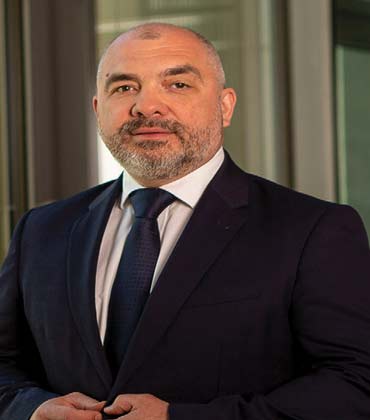
The Banks Experience: How a Companys Use of Fintech can Accelerate Growth and Make Everyday Life Easier
Mārtiņš Bērziņš, Head of Digital Customer Experience, Deputy Business Development, Citadele Banka
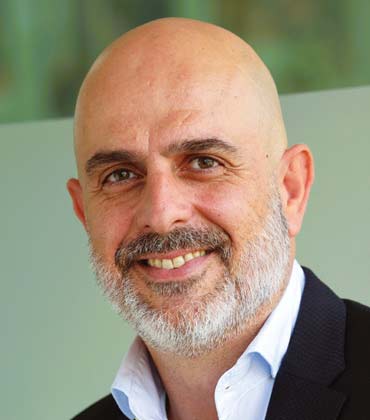
When Less is More
Jesús Díaz Barrientos, Head of Finance, DO & CO AG [NYSE: DOC]
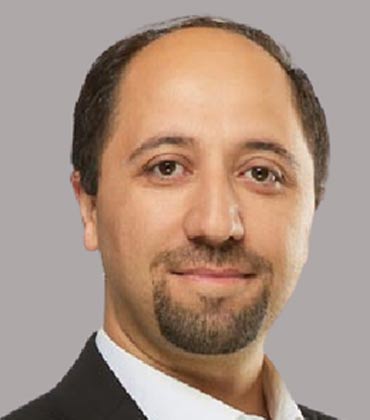
Navigating Digital Transformation for Incumbent Banks
Ozgur Koc, Head of Digital Banking & Transformation, Credit Europe Bank N.V
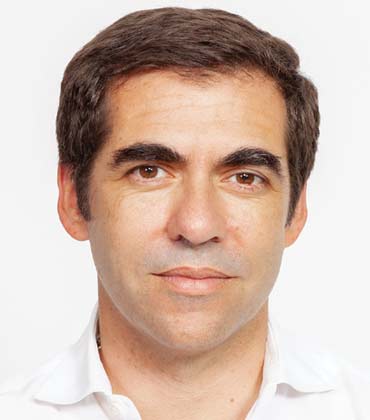
Future of AI in the Financial Sector
Pedro Mira Vaz, Chief Data & Analytics Officer, NOVO BANCO
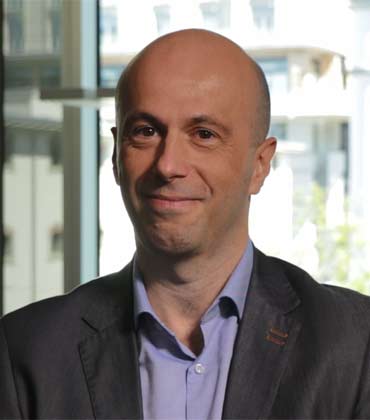
Transforming Financial Licensing Services and Industry Trends
Yvan Roduit, Head Investment Advisory, Raiffeisen Group
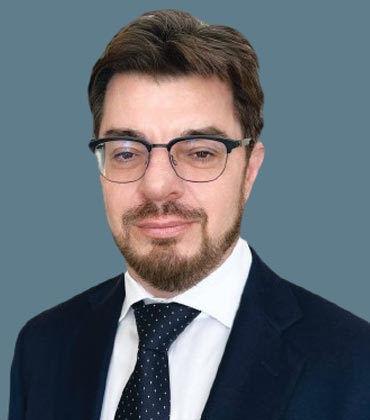
Esg Risk Management In Banking: Pragmatic Insights And Roadblocks
Yaroslav Sovgyra, Head of Credit Risk (ESG and Portfolio Management), Lloyds Banking Group
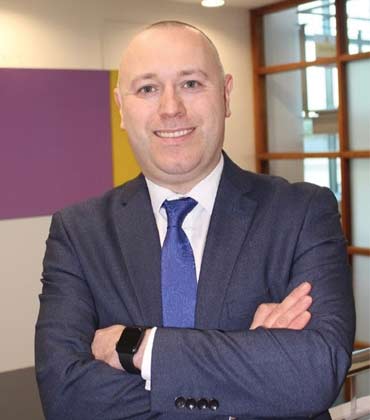
Digital Banking in the Palm of Your Hand
John O'Brien, Head of Contact Centre, CX, Digital & Banking Ops | Transformation Leader | Speaker | Strategist, PTSB
IN FOCUS
EDITORIAL
Modern Risk Protection for a Modern Europe
Business risk in Europe is not what it used to be. Climate volatility, economic swings, and rising payment defaults have shifted from background noise to everyday concerns, especially for small and mediumsized enterprises. Getting through it all takes more than traditional insurance or waiting to respond after a crisis hits. It takes a smarter, more connected approach.
That is where a new wave of Financial Risk Management Services and Smart Android POS systems comes into play. They might seem like two separate tools, but when used together, they are reshaping how businesses across Europe protect themselves and keep growing.
Financial Risk Management Services today go well beyond basic liability or property coverage. With solutions like Commercial Flood Insurance and Trade Credit Insurance, businesses are now better equipped for risks that used to come out of nowhere. Whether it is a flash flood in Belgium or a major client defaulting in Spain, these services help cushion the blow so companies can stay on track.
On the other side, Android-based POS systems have stepped up in a big way. They are smart tools that offer real-time analytics, customer insights, and transaction data. For businesses that offer trade credit, this means being able to spot unusual payment patterns, track receivables more closely, and catch red flags before they turn into real problems.
Together, these tools offer a way to connect financial protection with day-to-day intelligence. The result is more agility, better cash flow, and a stronger foundation to handle whatever comes next.
As the European business climate grows more unpredictable, combining smart financial services with integrated tech isn’t just a nice-to-have—it is becoming essential. The companies that make that connection are setting themselves up to thrive.
In this edition, we spotlight Stefan Rauch, Head of Compliance, VP Bank AG, and Maria Azinhal, Regulatory Compliance Manager, Caixa Geral de Depósitos, for their leadership in building compliance frameworks that enhance organisational resilience and support smarter financial risk management across Europe.


